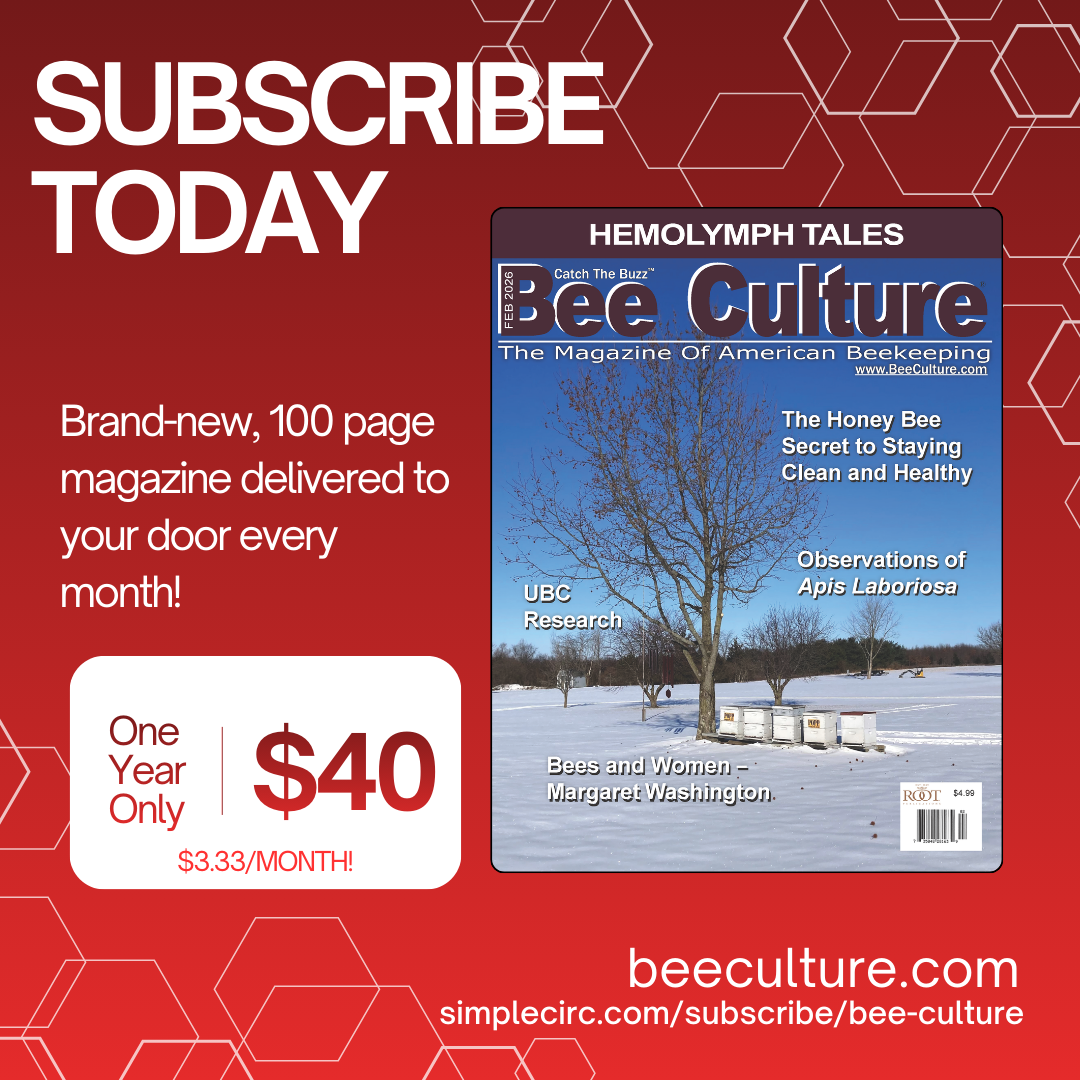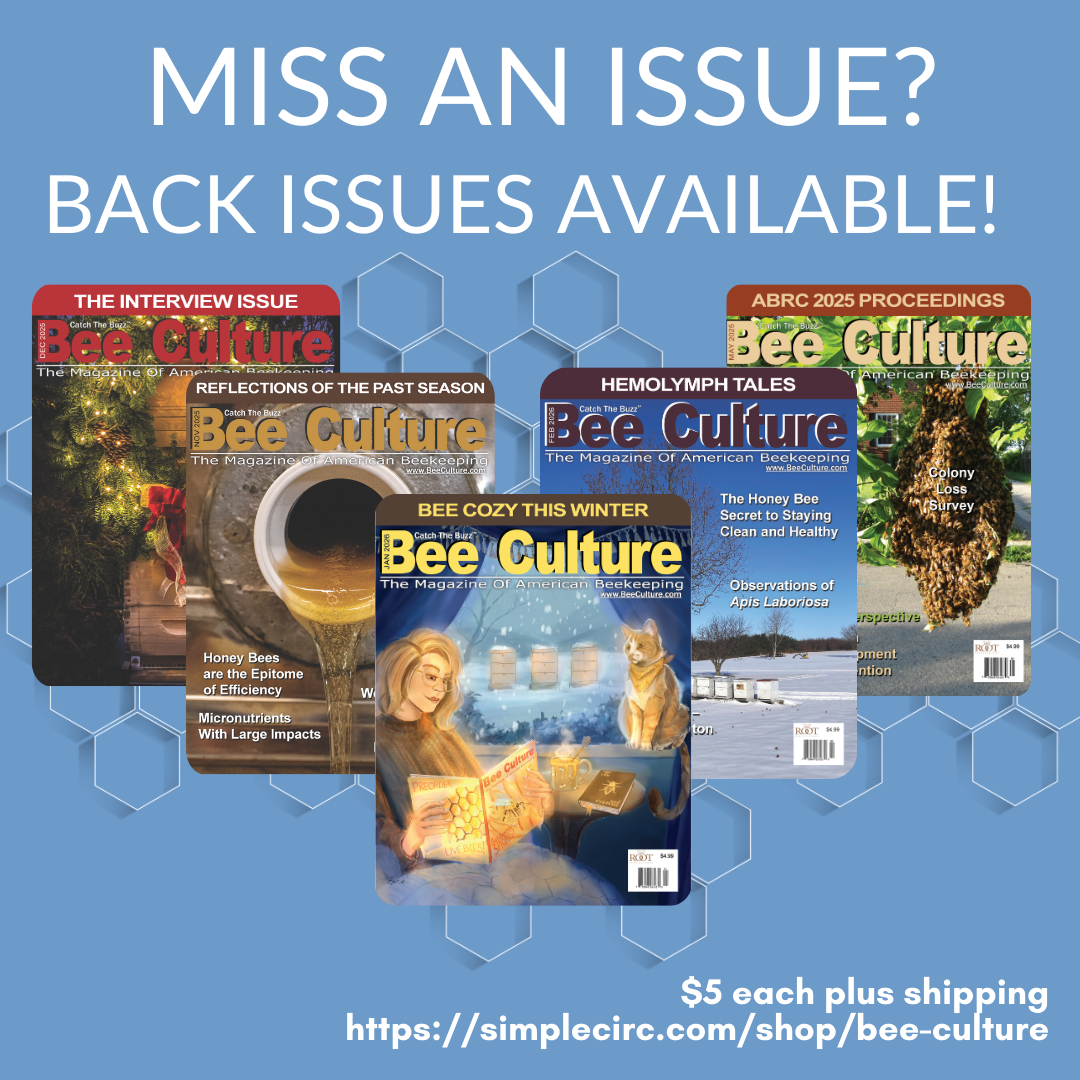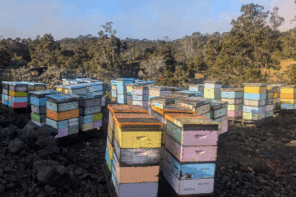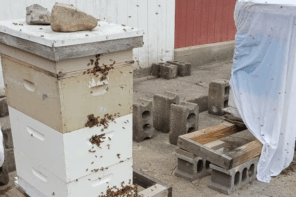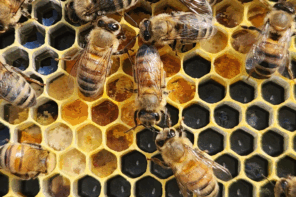 Ernie Schmidt
Ernie Schmidt
The dictionary says the definition of a Dutch Uncle is – “1. A counselor who admonishes frankly and sternly. 2. One who reproves in a blunt, stern manner intended for the benefit of the recipient.”
I wish I would have had a Dutch Uncle mentor when I started beekeeping. An unvarnished unromantic overview of bees and keeping them would have given me a clearer perspective of what I was about to get into. It would not have dissuaded me personally from becoming a beekeeper. Quite the contrary, my mind was made up and this information would have emboldened me to the challenge. It would have given me a deeper, clearer, realistic understanding of caring for the bees and knowing more of what to expect. Even under the best of conditions, successful beekeeping is hard and at times disappointing. I think that at least knowing that, it is one more piece of knowledge in helping one become a successful beekeeper.
My Intention
Francis Bacon’s quote, “Read not to contradict nor to believe, but to weigh and consider.” This is the best way to explain this article. It’s not my intention to dissuade or discourage anyone from keeping bees. My intention is to share a knowledge of realist expectations. Beekeeping can be heart breaking, devastating, and riddled with pitfalls and difficulties but still be a fulfilling and blissful endeavor. I know that sounds strange but being aware of the possible difficulties and disappointments from the beginning will make the learning process less stressful. After reading what you are about to read- it can go one of several different ways- don’t believe it, disregard it, attack it, gather a few nuggets of knowledge that will help you- to list a few. What I write might discourage someone and they might decide not to keep bees but if you really have your heart set on keeping bees, do it! Just remember at times it will be difficult and disappointing.
Beekeeping is Different
Beekeeping is unlike any other form of animal husbandry that humans are involved in. It cannot be compared to anything else we do with plants or animals. It requires an entirely different mindset, knowledge, and skill set to understand before becoming proficient at it. One can be experienced raising chickens, goats, fish, dogs, anything else- nearly all that knowledge wouldn’t apply to bees. I don’t know of a creature in animal husbandry more difficult to be successful with that the honey bee. There is a good reason we don’t hear the phrase “Master Chicken Keeper.”
Generally speaking there isn’t even a consensus that the honey bee is actually a domesticated creature or not.1 Mankind has been working with the honey bee for 1,000’s of years and they are still a challenge to work with. Much like a wild creature they don’t respond well to being forced to do anything. Many times when feeling pressured or forced to do something they will simply abscond or in worst case, die. They are a creature the keeper learns their behaviors and works with those behaviors.
A famous beekeeper, F.E. Moeller once said, “Beekeepers in managing and manipulating colonies, are merely facilitating normal biological colony changes to suit their purposes.” The way I personally describe this philosophy is, “The secret to managing bees to do anything you want them to do is get them to think it was their idea to do it.”
Life Expectancy
This an area of beekeeping that really requires a high level of that reasonable expectation. By their very nature as insects, honey bees have very short lives. Workers live about 40 to 45 days in the Spring and Summer. Winter bees can live up to six months and queens one to three years.2 To make this age thing even more confusing, a queen’s age really doesn’t depend on her age in years. It depends on her level of egg production. When she runs out of viable eggs, she is old. That can happen in months with some queens and years with other queens. The most important mindset is that the life spans of individual bees is very short compared to other forms of animal husbandry. Inexperienced keepers will start a colony then expend time and energy expecting a specific colony to live longer that it’s normal life expectancy. In human terms and compared to other forms of animal husbandry the life span of a specific individuals in a colony are very, very short. In the first year of beekeeping the learning curve is pretty much straight up. It’s not just learning the method of managing bees that is difficult, it is learning the mindset of how age and life span works with bees. Some sources estimate that up to ¾ of all new keepers quit in their first year.3 Many of the people that fail think it’s their fault. They did something they shouldn’t have or didn’t do something they should have and they killed their colony. Honey bees can die from a plethora of reasons, but many times in reality that specific colony just reached the end of its life span. In nature under good conditions the mortality rate of wild honey bee swarms would shock the average beekeeper. About 80% or four out of five new wild swarms die in their first Winter and that is normal.4
So we are working with creatures which by nature have short life spans and high colony mortality rates. Though humans with domestic management methods are able to reduce much of that high natural colony mortality level of swarms in nature. We cannot change the fact they have short lives. There is nothing you or anyone else can do to create individual bees that live longer or manage them to live longer life spans. As a beekeeper one is preventing the death of a colony by appropriately understanding and managing the life spans of the individual bees in that colony.
Anthropomorphism:
“Is the attribution of human traits, emotions, or intentions to non-human entities. It is considered to be an innate tendency of human psychology. People have also routinely attributed human emotions and behavioral traits to wild as well as domesticated animals.” The complex communications of a colony largely depend on chemicals and pheromones. If bees had the luxury of independent feelings and emotions the unquestioned cohesion of the colony would fail. When a specific stimuli is produced, an “on mass” specific behavior must result, without question, feelings, or emotions from individual bees.
Many times, the very survival of the colony will depend will it. There can appear to be honey bee behavior that we as humans may consider a sign of emotion or feeling, but are merely normal bee behaviors that don’t require emotion or feelings. Colonies that are not stressed and going about normal behavior may appear “happy” as opposed to stressed or harassed colonies being “mad”. A single bee or colony attacking a threat is not happy or mad, merely responding in a normal survival behavior to a perceived or real threat. A colony of bees attacking is not particularly a swarm of mad bees, but a swarm of bees responding a specific chemical or pheromone. A bee doesn’t need to be angry to sting, a chemical or pheromone triggers an emotionless, unfeeling, unquestioned, instinctual behavior in the bee. Basically it is us as humans that process the complexities of bee’s behaviors by comparing it with human emotions. It is easier for us to understand honey bee behavior and feel closer to our bees by concluding the bees are acting with human emotions. Bottom line here is that if one wants to attribute human emotions to honey bee behavior it wouldn’t bother the bees. Being a human and emotionally connected to our bees is more for our benefit. I have a personal saying; “It is a delicate dance between the honey bee and mankind. However the honey bee has been dancing just fine all by itself for millions of years.”
A little about luck
Luck in working with bees is usually when something good happens and you can’t really document what you did to cause it and not sure exactly how to make it happen again. Depending on luck shouldn’t be a management method in beekeeping. One cannot do nothing, get lucky and hope it happens again.
The problem with depending on luck is that eventually it will run out. That’s not to say that sometimes luck doesn’t come into play as a beekeeper. As long as I have been a keeper, there are still times when something happens with my bees and I realize it was total luck and not my skill. Those times I don’t expect it to always happen again, I was lucky that time. What I am saying here is don’t let luck seduce you into thinking you’re good. It’s good to be lucky, but it takes more than luck to be good.
In Closing
My plan when I first conceived this article was not to make it a “how to keep bees” as much as a “heads up about beekeeping”. Talking openly about some of the challenges that aren’t always addressed. However, I would be remiss, after all this Dutch Uncle’ing, if I didn’t leave you with some hope. After all my years of keeping bees if I had to decide the one single most important skill every beekeeper should master- it would be the skill of “making more bees.” Don’t manage your bees with the unrealistic expectation they are going to live long lives. Manage them like you are going to have to constantly make new generations of bees. Learn methods of making splits, requeening, and chasing swarms. Even buying new packages and Nucs every year is a method of “making” more bees.
Understand that the reality of beekeeping is the ongoing replacement of your current bees with new bees. A successful beekeeper once said, (I forget who) “A truly successful beekeeper is the one that is selling bees when everyone else is buying bees.”
1. Randy Oliver, 2014 http://scientificbeekeeping.com/whats-happening-to-the-bees-part-5-is-there-a-difference-between domesticated-and-feral-bees/
2. Honeybee lifespan: the critical role of pre-foraging stage. 2020, Alberto Prado†, Fabrice Requier†, Didier Crauser, Yves Le Conte, Vincent Bretagnolle and Cédric Alaux, https://royalsocietypublishing.org/doi/10.1098/rsos.200998
3. 2017 https://www.honeybeesuite.com/beekeepers-will-quit/ Ernie Schmidt, Eschmidt158@aol.com
4. Life-history traits of wild honey bee colonies living in forests around Ithaca, NY, USA, 2017, Dr. Thomas D. Seeley https://link.springer.com/article/10.1007/s13592-017-0519 1#:~:text=Most%20colonies%20(97%25)%20survive,probably%20by%20swarming)%20each%20summer.


